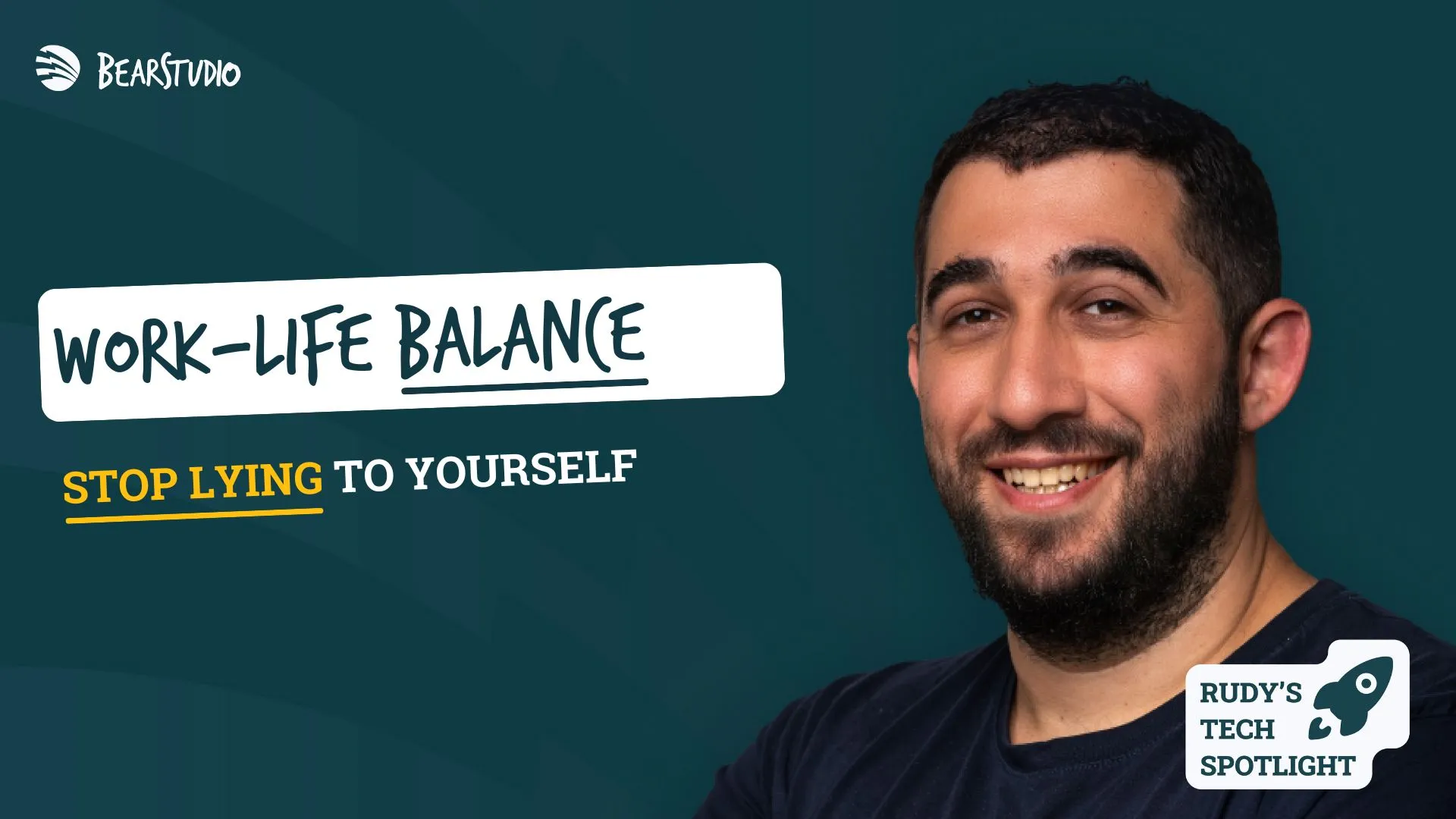Work-life balance: Stop lying to yourself

Ah, the myth of “work-life balance.” Let’s talk about it. That romanticized illusion sold to you through syrupy LinkedIn posts and wellness podcasts, promising a magical boundary between your job and your personal life. Spoiler alert: it doesn’t exist. No more than Santa Claus. Your professional life influences your personal life, and vice versa. Need proof? It’s everywhere, and it’s not always pretty.
1. Your Schedule Isn’t Really Yours
Take a look at your calendar. Be honest: how often do you plan your personal life around your work obligations? Vacations, family dinners, even lazy Sundays… they all seem to hinge on whether your boss, your team, or your clients need you. Dreaming of a peaceful October in Bali? Forget it if it’s during a project launch or the end of a quarter.
And then there are the late-night emails, the “quick” meetings on your day off, the constant tug of work creeping into your personal time. It’s not just a rare inconvenience: it’s a pattern. The truth is, your professional life often dictates your personal plans, whether you like it or not.
2. The Myth of Disconnection
Ah, disconnection. That trendy buzzword that promises salvation if you just turn off your phone or log out of your email. But let’s be real, disconnecting isn’t just about shutting down your devices. It’s about shutting down your thoughts. And that’s a whole different challenge.
Here’s a moment that stuck with me: I was playing with my newborn son, trying to soak in the joy of the moment. But my mind? It was stuck on a work problem I couldn’t solve. I wasn’t really there. And then it hit me: there was nothing I could do about work at that moment. The problem could wait. My son couldn’t. That realization didn’t make me a master of disconnection, but it did remind me that sometimes, the most important thing is what’s right in front of you.
The truth is, disconnection isn’t about perfection. It’s about accepting that some things can wait. It’s about being present, even when your mind tries to pull you back to work. And it’s about letting go of the idea that you can (or should) always have everything under control.
You wouldn’t bring your work to the beach, so why should you think about it?
3. Lessons from Asia: Embracing Fluidity
In many parts of Asia, the concept of work-life separation isn’t really a thing. Work and personal life flow together in a way that might seem chaotic to Western eyes, but it works.
I can’t count how many shops I visited in Thailand where the owner’s kids were running around, playing in the aisles. The shop wasn’t just a workplace, it was their home. In many cases, the shop is built in the house, or maybe the shop is built around the house?
Either way, the line between work and personal life doesn’t exist. It’s a cultural thing, and it’s fascinating to see how naturally it works.
In contrast, Western culture often demands strict compartmentalization. Work is work, and personal life is personal life. Regulations and cultural norms, often created to prevent past abuses, have drawn a line between the two. But because that line doesn’t really exist in practice, it creates an uncomfortable tension. Work intrusions feel like violations, and personal life feels like it’s constantly under siege.
But let’s face it: we’re not machines, despite Western culture, descending from the Industrial Revolution, trying to shape us. Two hundred years ago in Europe, work and personal life were not separated as they are now. And most cultures outside of the hyper-“civilized” world don’t make this separation, because trying to separate work and personal life completely is exhausting. And maybe it’s not even necessary.
4. Recruitment: The Blurring of Personal and Professional
When you hire someone, you’re not just hiring their résumé. You’re hiring a person; with their strengths, weaknesses, and, yes, their personal story. And that story doesn’t stay at the door when they walk into the office.
Think about it: a divorce, a family crisis, or even a bad day can, and probably will affect someone’s work. And yet, there’s this constant pressure to “leave your personal problems at home.” But that’s not how humans work. We carry our lives with us, whether we want to or not.
And it’s not just about what happens at home. In today’s world, your personal life is more visible than ever. Social media, cancel culture, and public scrutiny mean that what you do outside of work can have real consequences for your career. It’s not fair, but it’s reality. Personal baggage doesn’t stay personal, it spills over into professional life. And that’s something we all have to navigate.
5. The Emotional Toll of the Work-Life Blur
Let’s not sugarcoat it: the constant overlap of work and personal life can take a toll. Burnout, stress, guilt… they’re all too common when the lines between the two become too blurry. And it’s not just about working too much. It’s about the emotional weight of trying to juggle everything, of feeling like you’re failing at both work and life.
And I’m well placed to know it. I’ve been scaling a company from 3 to 20 human beings; it demanded my full focus to grow, attract the right customers and partners, or simply to be able to choose who I wanted to work with. I made some “bad hires”, learned my valuable lessons, and they came at a certain cost, because it’s hard to not think about problems caused by your team when you are the captain and the face of the company.
The truth is, the work-life blur isn’t just a logistical challenge, it’s an emotional one. And it’s okay to admit that it’s hard.
6. A Call for Reconciliation
Here’s the thing: work and personal life aren’t two separate worlds. They’re like sweet and salty flavors; different, but inseparable. And maybe that’s not such a bad thing.
Instead of trying to draw a strict line between the two, maybe it’s time to accept that they’re always going to overlap. Some days, work will take priority. Other days, your personal life will. And that’s okay. Life isn’t about perfect balance, it’s about finding a rhythm that works for you, even if it’s messy.
There is no bold border between rigidity and fragility
Instead of feeling guilty about a poor work-life balance, take control by adjusting the main variable: your work. Consider seeking a job that aligns more closely with your purpose and values, whether that means transitioning to a four-day workweek, opting for a fully remote position, or choosing an in-office role that suits your lifestyle. However, it’s crucial to avoid adopting an extreme approach in either direction: while prioritizing well-being, we must also meet practical needs like providing for our families, embracing a balance that fuels growth without succumbing to rigidity or fragility. By actively shaping your work environment to fit your personal needs, you can create a more fulfilling and integrated life.

Rudy Baer
Founder and CTO of
BearStudio,
Co-founder of
Fork It! Community!
March 31, 2025
Mindset, Business